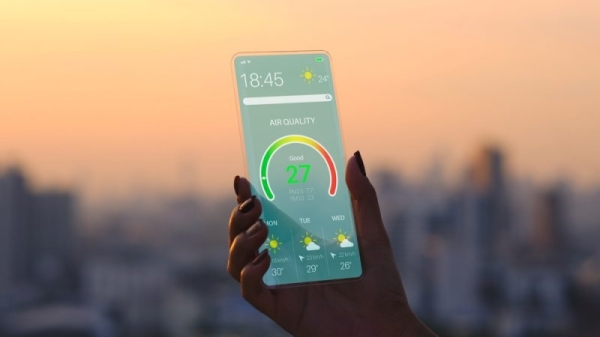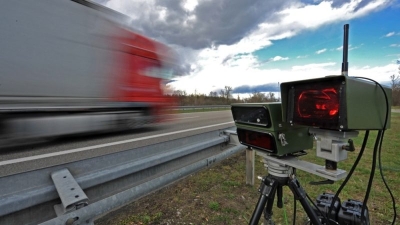Irish government approves country’s first ‘Clean Air Strategy’

Ireland’s first ‘Clean Air Strategy’, aimed at reducing pollution-related deaths and improving air quality to meet targets set by the World Health Organisation (WHO), was approved by the government on Wednesday.
Poor air quality, caused by burning fossil fuels for transport, heating and power, negatively impacts people’s health and the environment.
“There are no safe levels of air pollution. Clean air is central to our wellbeing, particularly the wellbeing of the most vulnerable – children, older people or people who may be medically compromised,” said Climate and Environment Minister Eamon Ryan as he launched the strategy.
While Ireland is far from the worst offender in Europe, air pollution in the country is estimated to cause 1,300-1,400 premature deaths each year – 10 times more than the number of people who die on the roads, according to the government.
This was highlighted in a report published last year by Ireland’s Environment Protection Agency (EPA), which found that the country’s air quality is “generally good” and “compares favourably” with other European countries.
However, it flagged “concerning localised issues which lead to poor air quality”. It warned that while Ireland met its EU legal requirements in 2021, it did not meet new health-based WHO guidelines due to the burning of solid fuel in towns and villages and traffic in cities.
While recent decades have seen significant improvements in air quality in Ireland, there are still times when it is not at an acceptable level, and it continues to cause damage to both health and the environment, according to Ryan.
“A whole-of-Government commitment is required to achieve further clearing of the air that we breathe, but it can only be fully realised through our collective efforts,” he added.
The 2022 report called for the publication and full implementation of the national strategy and added that local authorities need more resources to improve air quality while national investment is needed in clean public transport.
Under the strategy approved on Wednesday, Ireland commits to achieve those WHO guidelines for good air quality by 2040 with interim targets for 2026 and 2030.
It also looks at integrating clean air considerations across government policy, increasing understanding of pollution sources, promoting awareness of the importance of clean air and working to reduce pollutant levels.
The strategy “highlights Ireland’s ambition to reduce air pollution further and promote cleaner ambient air to save lives, make our towns and cities more liveable and improve our environment,” a spokesperson for the Department of the Environment, Climate and Communications told EURACTIV.
However, meeting the new WHO guidelines for air quality will be a major challenge for the country, said Dr Micheál Lehane, the director of the EPA’s Office of Radiation Protection & Environmental Monitoring, when the air quality report was published in 2022.
“In our towns and villages, monitoring identifies high levels of particulate matter associated with burning solid fuels, and in our larger cities, high levels of nitrogen dioxide are associated with road traffic,” he said.
“There are options and solutions to help improve the air we breathe. Changes we make to how we heat our homes and finding alternative travel methods can immediately impact our local air quality,” he added.
(Kira Taylor | EURACTIV.com)
More on the same topic...




